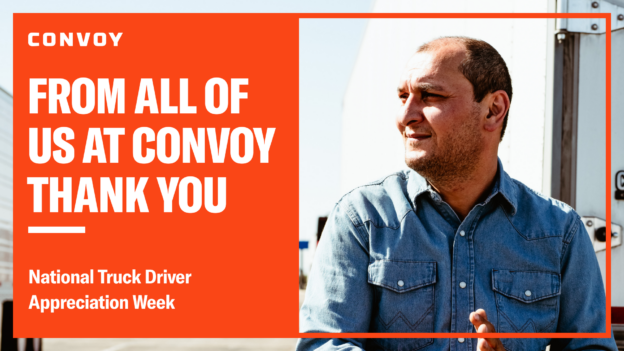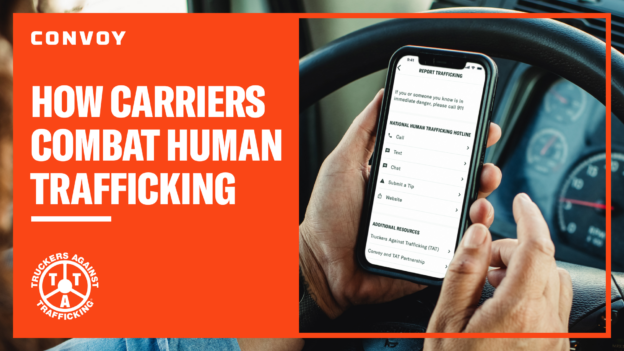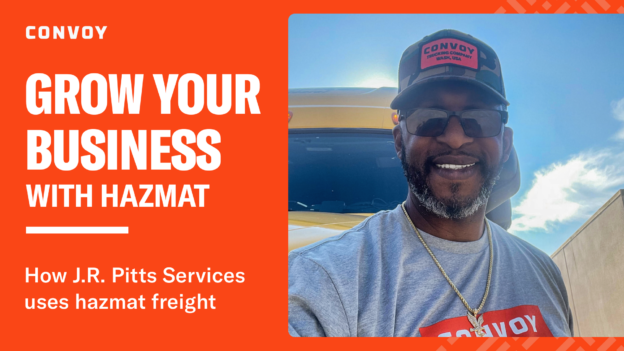How to start a trucking company
Carriers • Published on May 15, 2019
Many truck drivers are fulfilling their dreams of getting their operating authority and starting a trucking company. Here are six steps to get your owner operator trucking business off the ground.
In this article:
- Create a plan
- Buy your equipment
- Register your trucking business
- Get your operating authority and other licenses
- Purchase insurance
- Find and book loads
Step 1: Create a plan
What’s your vision, and how will you get there? Creating a business plan will help you think through key elements of starting your business. Some examples of what to include in your business plan:
- How your company will be organized. Will you be the only employee, or are you planning to hire another driver right away?
- How you’ll get funded. Initial costs for starting a trucking company with one truck can range between $6,000 and $15,000, not including your equipment. (To be safe, it’s best to have at least six months of living expenses in the bank, plus a little extra if you have dependents.)
- The services you’ll offer. Are you planning on long-haul dry van loads, or local runs? How often will you be on the road?
There’s no one-size-fits-all business plan, but the U.S. Small Business Administration lays out two different business plan formats. Pick and choose the sections to include that make sense for you — the point is to create a roadmap to get your business off the ground.
Step 2: Buy your equipment
It often makes more financial sense for owner operators to buy their trucks rather than lease — but are you choosing a new or used truck? New trucks will put a bigger dent in your overhead, but may give you better fuel efficiency and lower maintenance costs.
If you decide to buy a truck, create room in your budget for market slowdowns and unexpected maintenance. In 2018, the cost-per-mile of driving a truck — including wages — was $1.69 per mile. We recommend calculating your actual cost per mile, which may be much lower than that if you’re a one-person operation. A good rule of thumb is to save 10% of your per-mile cost for repairs.
Step 3: Register your trucking business
Establishing a Limited Liability Corporation, or LLC, is the most common designation for owner operators. As an LLC, you get control of the business while protecting your personal assets. Check requirements in your state to see how to obtain your LLC.
Step 4: Get your operating authority and other licenses
Starting a trucking company requires many licenses before hitting the road, starting with a CDL. Below are the major steps recommended to become an owner operator and open your own trucking business:
- DOT Number: The U.S. Department of Transportation requires all motor carriers with vehicles weighing 4,536 kg (10,001 pounds) or more to register for a DOT number. Registering with the DOT must be done prior to applying for a motor carrier (MC) number. While some states don’t require intrastate only carriers to register with the DOT, many shippers and brokers (Convoy included) require all carriers to be registered with the Department of Transportation.
- Operating Authority (MC Number): Issued by the Federal Motor Carrier Safety Administration (FMCSA), any interstate carrier is required to register for an MC Number. Registration can be submitted through the FMCSA website. Obtaining an operating authority is not required for intrastate-only carriers.
- BOC-3: All interstate motor carriers must file a BOC-3 designating a process agent in each state in which the company operates. Process agents are present to receive legal paperwork on behalf of the out-of-state trucking company. Filing a BOC-3 is not required for intrastate carriers.
- International Registration Plan: IRP is an agreement between the United States and Canada allowing carriers to be apportioned in all 48 states and 10 provinces.
- International Fuel Tax Agreement: Similar to IRP, all 48 states, and 10 Canadian provinces participate in the International Fuel Tax Agreement. Setting up an IFTA account is necessary to report mileage needed for fuel taxes across state lines. Quarterly tax filings are dependent on miles were driven in each state or province.
Note: While this list is designed as guidance for those interested in hauling general freight (not household goods, passengers, hazardous materials, or other special categories of freight), this list is not comprehensive and, depending on the characteristics of individual motor carriers, requirements may be different. Do your research!
Step 5: Purchase insurance
The FMSCA requires a carrier to have a minimum of $750,000 commercial auto liability insurance. While $750,000 is the minimum, most shippers and brokers (Convoy included) require carriers to have $1 million commercial auto liability insurance and $100,000 cargo insurance.
Step 6: Find and book loads
Convoy’s load boards are a great option for owner operators looking to start their trucking business.
- Within our app, we show you all of our available freight. We don’t follow the common industry practice of hiding loads or dedicating freight to large carriers.
- No need to talk on the phone all day trying to haggle with a broker. Our app is self-service and allows you to book and bid on loads directly through Convoy.
- Convoy understands the upfront costs of starting a trucking company and wants you to get paid as quickly as possible. We offer free payments within 48 hours of delivery, plus one-tap detention pay.

Whether you plan on being a one-truck operation or want to grow a fleet, this roadmap will help you get off the ground faster. Starting a trucking company isn’t easy — but for many owner operators, the job gives them the freedom they’re looking for.
About the Authors
Brian Sinclair
Brian started at Convoy in early 2016 and was immediately drawn to the carrier side of the business. In his current position managing the South region of Convoy’s Brokerage Operations team, Brian focuses on serving our current carrier base and exposing new carriers to the benefits of Convoy. A graduate of Gonzaga University, Brian had a background in sales before jumping into the exciting world of freight. Outside of trucking, Brian enjoys eating great food, drinking great beer, and wishes every season was football season.
Travis Cole
Travis is a senior broker operations specialist at Convoy. Having worked in freight for a number of years, he recently made the jump from the carrier side of LTL. In his time in freight, Travis has developed working relationships with drivers and brings insights from the carrier experience side of the industry. Outside of work, Travis enjoys attending all sporting events and is excited to transition from the Big House of Michigan football to rooting on his new local teams.



